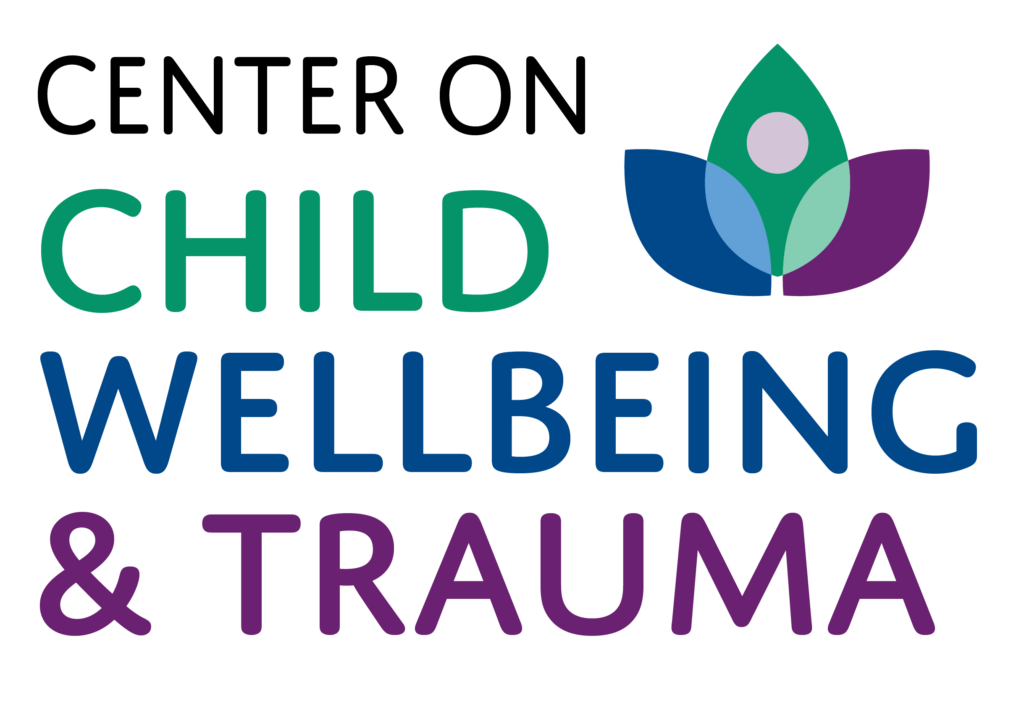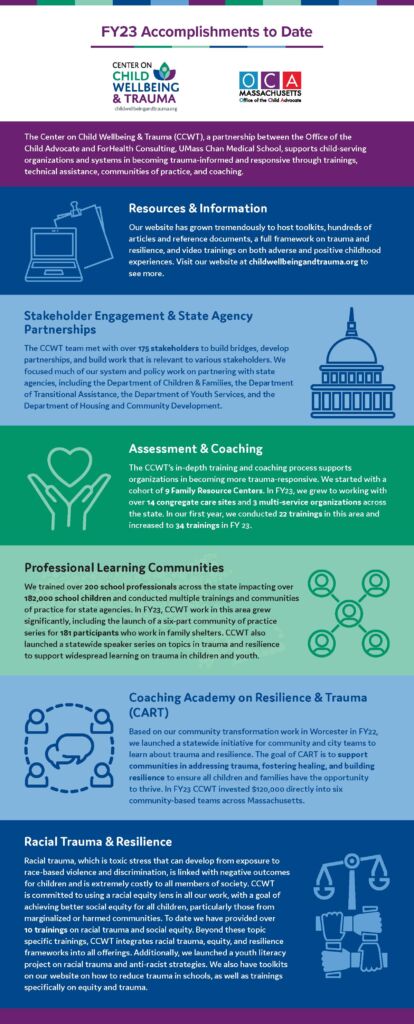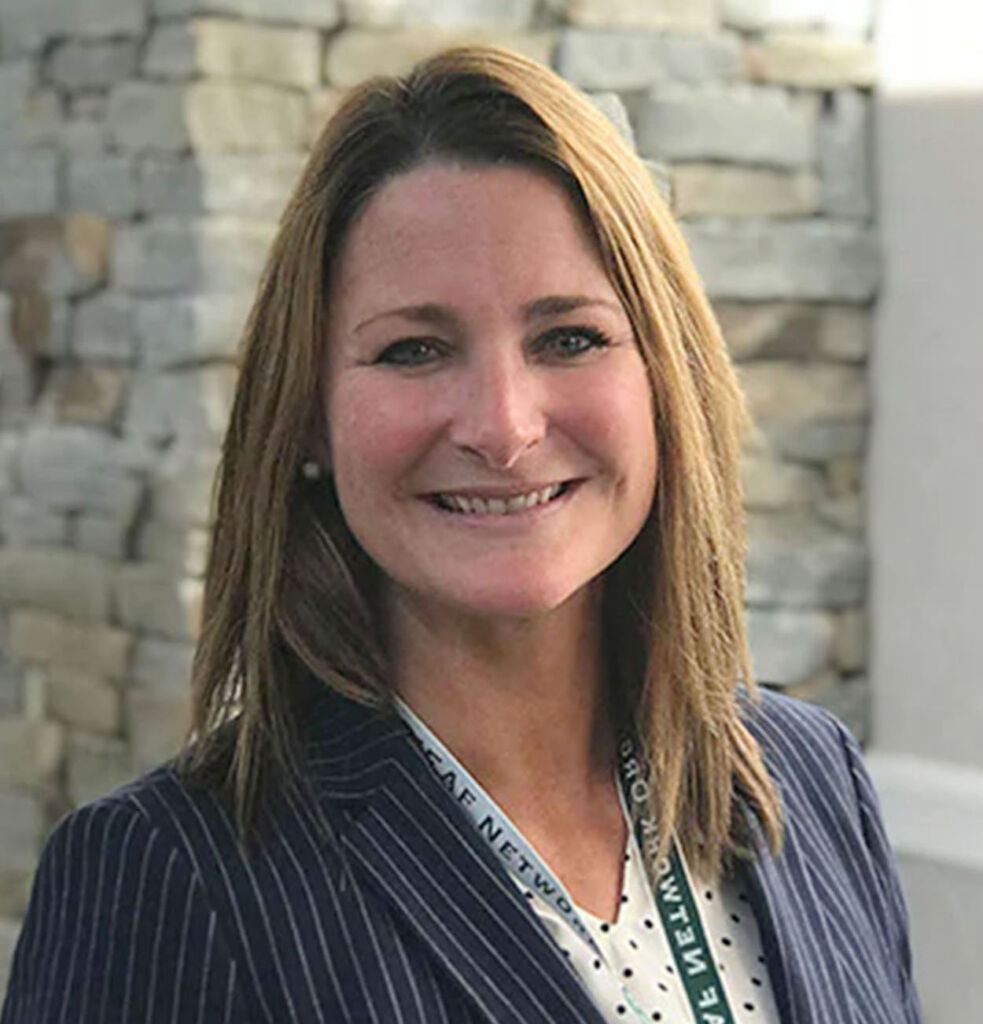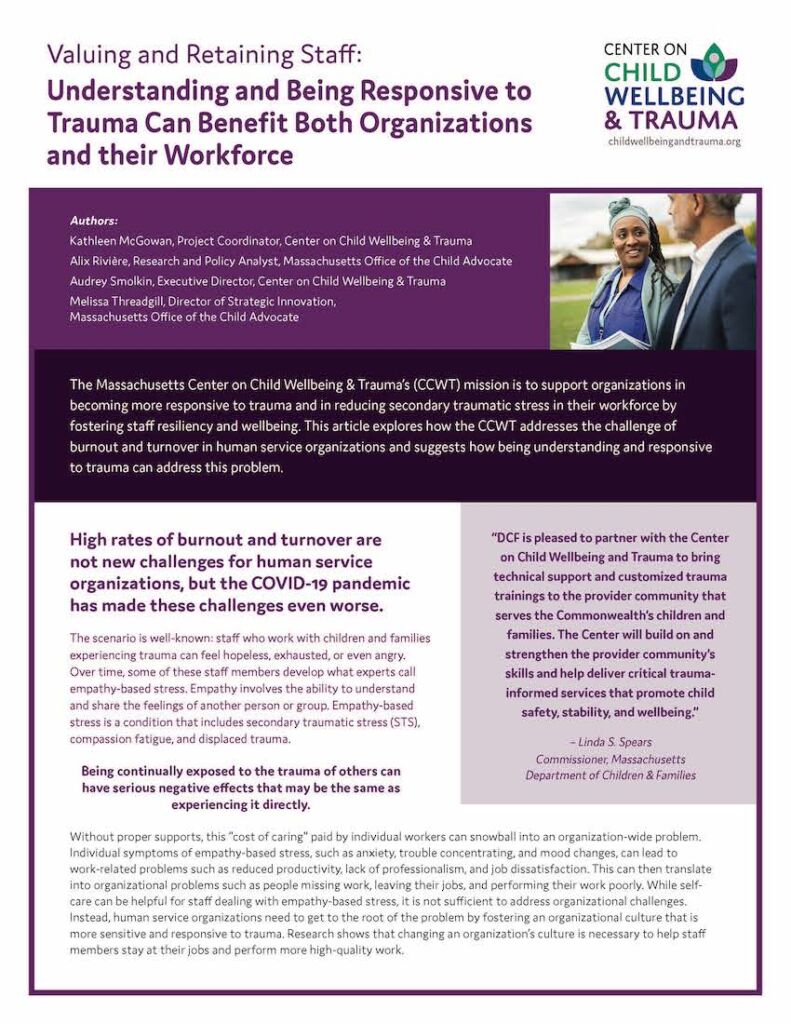Note from the Executive Director – December 2023
I speak for the whole team when I say we are happy to celebrate the Center entering its third year! The Center on Child Wellbeing and Trauma (CCWT) was established by the Massachusetts Legislature in 2021 following recommendations made by the Childhood Trauma Task Force and has continued to expand each fiscal year since. The CCWT supports child-serving organizations and systems in becoming trauma-informed and responsive through trainings, technical assistance, communities of practice, and coaching.
We have many accomplishments to share, and you can read about them in the CCWT FY23 Year in Review which highlights the successes of the Center over the last fiscal year. It has been a productive year, and the Center has reached thousands of providers including teachers, human service workers, staff agency staff, and provider organizations across the state.…












